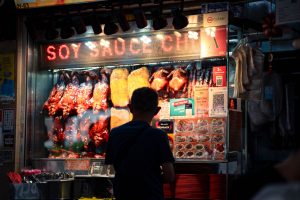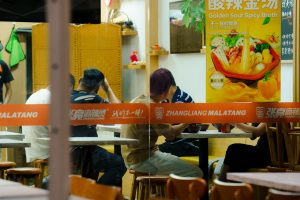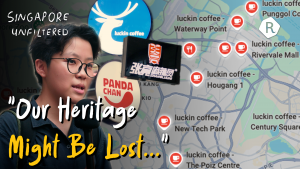A few years after settling in a tin mining town in Perak, Eu Kong set up a Chinese medicine shop. He named it Eu Yan Sang, which translates as “Caring for Mankind”.
Today, the Eu Yan Sang Group has approximately 300 traditional Chinese medicine (TCM) outlets across Asia and Australia. The business has grown, over a century, to become a household name in Malaysia and Singapore, but it has also thrived elsewhere: Hong Kong currently brings in the highest share of revenue.
Wherever the Chinese diaspora found a home, it seems that the demand for traditional Chinese medicine took root. Now, Eu Yan Sang is poised to take on its greatest challenge yet: the mainland Chinese market.
It’s been a tough year for the company. Net profit fell by 95% in the third quarter, at SGD286,000 compared to SGD5.45 million from the same period last year. Overall revenue for the financial year 2015 also took a dip for the first time in years. A large factor for this loss was the Malaysian economy, which saw the ringgit plummet last year – and with it, profits.
It is China – the motherland that Eu Kong Pai left all those years ago – that holds the promise to secure the company’s future.
“China represents our greatest challenge and opportunity,” says Richie Eu, General Manager of Strategic Development and Group Business Development Director of Eu Yan Sang International. He cites figures that show the TCM market in China could be worth as much as USD70 billion by 2020.
China has an ageing population and growing middle class, offering a huge potential consumer base. On top of that, the Chinese government intends to support TCM through policy and investment. Sales of TCM granules in the biggest hospitals have increased in the past few years and are set to keep growing.
But Eu is also frank about the challenges that will face the company’s foray into this new territory. Eu Yan Sang must tackle “a lack of brand recognition; an emerging young wealthy demographic; and the proliferation of ecommerce,” he says.
“It would be foolish for us to take an existing Eu Yan Sang product, repackage it, place it on a shelf in a Tier 1 city like Beijing and assume it sells straight away,” says Eu. “Healthcare in China is incredibly transformative and led by a rising upper-middle class whom are influential, tech-savvy, wealthy, and spread out across an ever-growing expanse of cities.”
Then there’s the competition. Eu Yan Sang would be competing against established players like Tong Ren Tang Technologies, Yunnan Baiyo Group and China Traditional Chinese Medicine, a state owned enterprise. The Chinese government is aiming to strengthen the domestic industry first and foremost.
However, Eu also sees the foreign background of the company as a potential advantage. Eu Yan Sang has a strong brand within Southeast Asia and particularly Singapore. This association could bring a positive “halo effect”, says Eu, given that many Chinese people are wary of food scandals from products made in their native country.
Eu Tong Sen then passed the business to his own sons. Family members continued to sit on the board after the company was publicly listed on the Singapore Stock Exchange, and a fourth generation relative – Richard Eu – was appointed managing executive in 1989. However, shortly after that, the company was taken over by property and construction consortium the Lum Chang group.
Richard Eu did not give up on the business. He set up Eu Yan Sang International and took back various subsidiaries of the holdings group until it was once more a consolidated TCM company. Eu Yan Sang International went public again in 2000.
“One of my dad’s most oft-repeated phrases is that ‘The Eu family will always be owners, but not necessarily managers,’” says Eu, who is a fifth-generation steward of the company. One of his guiding principles is to recruit and retain talented people who can run the business best.
Eu Yan Sang has made a point of innovating through the years – creating capsules from traditional herbs, for example, and opening health clinics as well as retail shops. Beyond its China operations, the company will need to keep evolving if it is to fight the decline in profits.
“Over the next few years, we plan to invest in two levers: operational improvements in our core markets and new product and service developments across digital platforms,” says Eu. As ecommerce expands across the region, Eu emphasises that Eu Yan Sang must innovate digitally while also creating a unique brick-and-mortar store experience.
For Eu Yan Sang, the next few years will be decisive. In order to thrive, the company requires not just business savvy, but a leap of faith and a measure of luck: something that its founder knew all too well.






